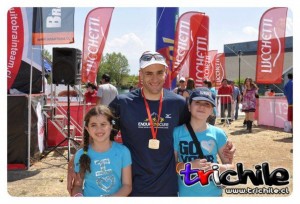How to Successfully Complete an Endurance Event: 10 Important Habits
 Are you going to do a road race, triathlon, cycling event, or any other endurance event? Great! Signing up was the easy part. Now the work begins. Here are 10 habits to successfully complete an endurance event:
Are you going to do a road race, triathlon, cycling event, or any other endurance event? Great! Signing up was the easy part. Now the work begins. Here are 10 habits to successfully complete an endurance event:
1) Consistency
This is your magic bullet in training and in life. If you cannot get your planned training day in due to life’s constraints, get at least something done for that day’s workout. Think “progress,” not “perfection.”
2) Have a greater purpose
There undoubtedly will be days when you just don’t feel like training, or times when you need to redefine your limitations of what you can do. Does waking up at 5:30am to go to the pool…in the middle of winter…when it is dark and frigid outside sound like fun? No, a warm bed and an extra hour of sleep sounds much more ideal. On those days, you need to be driven by something greater than yourself. Find a great cause you deeply believe in to dedicate your efforts. It often will be the difference between doing and not doing, or keep going and quitting.
3) Do not cram
This is not a final exam at school. You can’t cram for the marathon, meaning, you can’t skip a few days or a few weeks and then “make up” for those lost training days by doing extra runs the following weeks. This will almost surely lead to injury or illness.
4) People are a great resource…but
Find a training partner or group to do at least your long sessions with if you can. Having a training partner creates accountability, but it also can be fun or motivating. Just be sure to train with people who are a pace similar to yourself.
But people can also distract or confuse you and you must be able to filter the noise. For example, you likely will meet many people who provide unsolicited advice to you, and books and magazines with training advice from every philosophy imaginable are ubiquitous. So, pick your primary sources of information, training advice, and mentors, have faith in them, and stick with it throughout the duration of your event. Assess what worked and didn’t work, then make refinements. It is true that while there is no “one way” or “perfect way” to train and there are multiple ways to get to the same goal: to finish your event. At the same time, changing your training plan several times during your training is not an optimal approach.
5) Recover well
Nothing will derail your training faster than not getting enough recovery from your training–especially with running. Key things to remember: drink lots of water all day every day, sleep 30 minutes longer than you think you have to, cold water and/or ice baths after long runs will speed up recovery, and eat clean, nutritionally-dense foods as often as possible (again, think “consistency” with diet, too).
6) Shoes expire, too
Change shoes after you have 250-350 miles on them. Got new shoes? If not, get some and track your mileage in them. Don’t wear those shoes you bought 3 years ago and never ran in them. The midsoles in running shoes break down with age (as well as mileage). If you’re new to the shoe-buying scene, check out this post on how to find the best running shoe for you.
7) Do not treat training as a weight loss plan
Many people train for a marathon or triathlon to “get in shape” which is often synonymous with “lose weight.” Be cognizant that training for an endurance event is not a weight loss plan on its own merit. It is an arduous undertaking that your body needs to recover from on a daily, weekly, and monthly basis so don’t short-change it when it comes to food. Your body needs fuel to recover and you undoubtedly will be more hungry than when you were not training for an event (particularly if it’s a long-course event). As such, you will need to eat more. The best advice to follow is: don’t drastically change your normal diet/routine, but rather just gradually make better and better nutritional decisions at each meal.
8) Fuel your body after training
Within 20-30 minutes after you workout, your body (aka muscles) are primed to receive nutrition to help build/speed up the recovery process. Drinking some post-workout fuel that contains approximately 40-60g of carbs and 10g of protein is important. Get into this habit as quickly as you can and don’t miss out on this easy opportunity to help recover better and faster.
9) Do not “race your training”
People are competitive in nature. People are competitive with their friends. And many people train for an endurance event with their friends. These facts create an environment whereby you may find yourself running faster during training that the training plan might call for on that particular run. Don’t fall prey! Stay true to your training and save the racing for race day. You will be much better for it.
10) Promptly address injuries
You will most certainly get aches and pains during your training that you haven’t felt before. Knowing if those aches and pains are injuries or not comes only with experience. If you get an ache or pain, always err on the side of being cautious and see a medical practitioner who understands endurance training and have them opine. Better to address something early with preventative action rather than exacerbate any issue!
